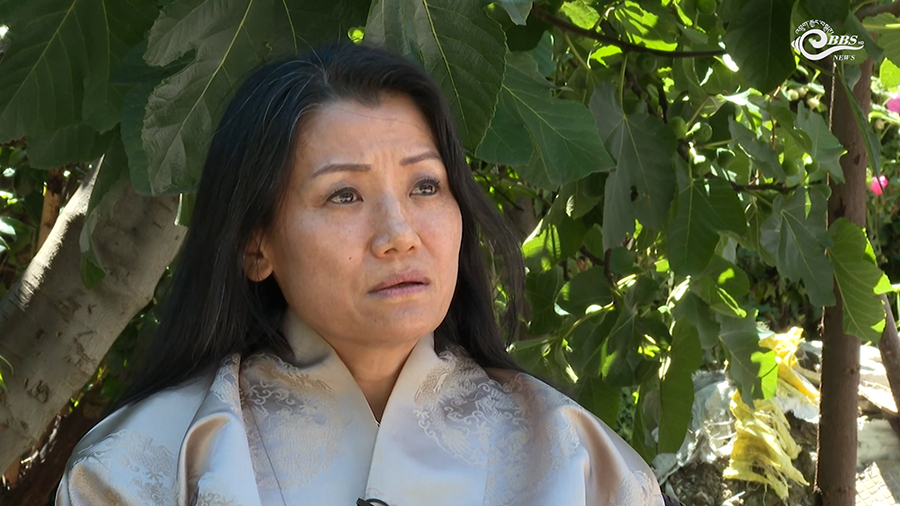 A Bhutanese researcher’s efforts might make understanding climate change simpler for young Bhutanese. Thinley Choden’s Bhutan Climate Literacy project intends to make climate change more than a textbook knowledge for school children. Focused on online teaching through short videos and digital content, the project aims to ensure every young Bhutanese citizen gets a deeper and more meaningful understanding of how changing climatic conditions impact the planet we call home.
A Bhutanese researcher’s efforts might make understanding climate change simpler for young Bhutanese. Thinley Choden’s Bhutan Climate Literacy project intends to make climate change more than a textbook knowledge for school children. Focused on online teaching through short videos and digital content, the project aims to ensure every young Bhutanese citizen gets a deeper and more meaningful understanding of how changing climatic conditions impact the planet we call home.
Despite its carbon-negative status, Bhutan remains vulnerable to climate change impacts. Yet, for many individuals, understanding climate change and how it affects the planet is difficult to understand for various reasons.
Bhutan Climate Literacy Project believes that in order for Bhutanese youth to understand this, they need to live the experiences of how changing climatic conditions impact the environment and our lives.
The project aims to spark that curiosity about climate among the youth and help them see themselves as part of the climate story.
When asked where they get their climate information from, most students pointed to online platforms like TikTok, Instagram, Facebook, and YouTube.
As a result, the project launched its online presence, delivering climate literacy through short videos, digital storytelling, and interactive content.
 “Bhutan Climate Literacy Project has three main objectives. Number one is climate literacy, and by that, I mean climate communication, trying to break down climate events into everyday language and things that people identify with. Number two is to create a discussion and debate around climate change and how it’s impacting our community, lives and our country. And, number three is to bring schools and policy-makers to the stream and help them to get young people’s voices heard,” said Thinley Choden, Founder, Bhutan Climate Literacy Project.
“Bhutan Climate Literacy Project has three main objectives. Number one is climate literacy, and by that, I mean climate communication, trying to break down climate events into everyday language and things that people identify with. Number two is to create a discussion and debate around climate change and how it’s impacting our community, lives and our country. And, number three is to bring schools and policy-makers to the stream and help them to get young people’s voices heard,” said Thinley Choden, Founder, Bhutan Climate Literacy Project.
The project runs climate literacy workshops, complementing their digital efforts with face-to-face sessions in schools and communities.
These workshops focus on hands-on, interactive learning, using games, storytelling, and role-plays. They’ve already piloted these workshops in over 20 schools and reached more than 600 students in partnership with Tarayana Foundation and READ Bhutan.
“After attending the Bhutan Climate Literacy Workshop, I learnt that climate change can be a huge threat to our lives because it brings many diseases. As a young girl, I need to learn about climate change because I can come up with plans for my own future and the development of our country,” said Ugyen Wangmo, a student at Jakar Higher Secondary School, Bumthang.
“It is important for youth like us to know about climate change, as we are the future citizens. So, we should know about this and look forward to climate change solutions and prevent it before it takes hold of us,” said Tenzin Rabsel, another student at Jakar Higher Secondary School, Bumthang.
“After participating in this workshop, I got to learn much knowledge that I didn’t know. It’s important that we, the youth, know about it as the project teaches us about climate change,” said Sherab Kencho, also a student at Jakar Higher Secondary School, Bumthang.
“Continued engagement with young people is one of our aspirations. I would also love to see collaboration with institutions, the government and schools. Organisations like the UN and WWF are also doing climate communication and advocacy; it would be great if we could find a common collaboration,” added Thinley Choden, Founder, Bhutan Climate Literacy Project.
Bhutan Climate Literacy Project is working to humanise and “Bhutanise” climate change, ensuring it’s grounded in local realities and lived experiences.
By doing so, they aim to equip youth with the understanding and motivation to take action in their daily lives, in both schools and communities.
 According to a 2020 survey by UNICEF, of the 510 young Bhutanese, aged 15 to 24 years, 86 per cent of them reported learning about climate change in school. However, over half of them lacked the confidence to explain their understanding of climate change and global warming.
According to a 2020 survey by UNICEF, of the 510 young Bhutanese, aged 15 to 24 years, 86 per cent of them reported learning about climate change in school. However, over half of them lacked the confidence to explain their understanding of climate change and global warming.
Kelzang Chhophyel
Edited by Phub Gyem








